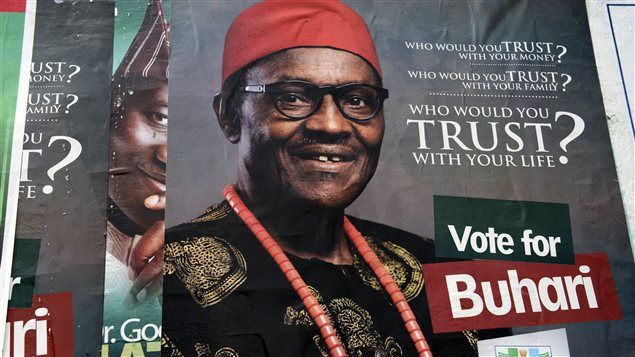Nigeria Elections 2015: If Elected, Buhari Would Be Tough On Boko Haram, Corruption, But Economy Might Suffer

Many Nigerians are frustrated with President Goodluck Jonathan and view his primary challenger, retired Gen. Muhammadu Buhari, as the man who can solve the nation’s security crisis and government corruption. But Buhari, a 72-year-old ex-military dictator, hasn’t held public office in decades, and Jonathan’s supporters have threatened renewed attacks in Nigeria’s southern oil-producing region if the incumbent loses the presidential elections on Saturday.
Buhari’s presidential campaign has focused largely on anti-corruption promises. Some Nigerians have claimed government corruption has escalated under Jonathan and the ruling People's Democratic Party, which has been accused of rigging elections and mishandling state funds. “Corruption is essentially out of control,” said John Campbell, the Ralph Bunche senior fellow for Africa policy studies at the Council on Foreign Relations.
More than two-thirds of the $70 billion that Nigeria generates in state revenue per year comes from oil and gas exports, and the president has a critical say in distributing these funds. Under Jonathan, more than 70 percent of the federal budget is spent on the salaries and benefits of public officials -- leaving little left to help Nigeria’s rural areas, where improvement in education, health, transportation and commercial development is desperately needed. Buhari of the All Progressive Congress opposition party could change that if he wins the presidential election Saturday.
“If he’s in office, he will have a strong anti-corruption initiative. It was the main thing he did as a military ruler,” said Darren Kew, an associate professor of conflict resolution at the University of Massachusetts Boston and the executive director of the Center for Peace, Democracy and Development.
In the late 1970s, Buhari was appointed chairman of the Nigerian National Petroleum Corporation and he also served two years as the federal commissioner – now called “minister” – for petroleum and natural resources, during which he did not enrich himself from the industry. Buhari had also previously overseen economic, political and social improvements as governor of the North-Eastern State.
But Nigeria suffered economically under Buhari’s regime as a military ruler from 1983 to 1985 after he overthrew a democratically elected government. And experts said Nigeria can't afford to take any more blows to its economy after the recent dramatic drop in oil prices.
“I don’t think he understands the microeconomic conditions,” said Jideofor Adibe, a lecturer at Nasarawa State Univeristy in Nigeria. “Things have changed.”
Buhari has tried to distance himself from his authoritarian past, though some Nigerians have argued his military background would help defeat the Boko Haram terror group that has killed and displaced thousands. His campaign has pledged to clear the Islamist militants from Nigeria’s northeast – an issue on which Jonathan, a 57-year-old southern Christian, has received abundant criticism. If elected, Buhari has said he will restore the Nigerian military, which has needed reinforcements from neighboring countries to reclaim territory from the militants.
"It’s a big disgrace for Nigeria. It is now Cameroon and Chad fighting the insurgency more than Nigeria. We will build the capacity and Nigeria should be able to secure its territorial integrity," Buhari told Reuters last month.
Buhari, a northern Muslim from Katsina state, could have a second security crisis on his hands if elected president. Former Niger Delta militants, who sabotaged oil production in the petroleum-rich south in the 2000s, have vowed to wreak havoc if Jonathan is not re-elected, according to Reuters.
Buhari told Reuters he “will not tolerate insurgency, sabotage of the economy by the blowing up of installations." As a former military dictator, Buhari may have the credentials on paper to handle security concerns, but he retired from the army decades ago and some say he is out of practice.
“All of this was a very long time ago,” Campbell said. “It’s speculation to talk about what his relationship with the military would be now.”
© Copyright IBTimes 2024. All rights reserved.





















